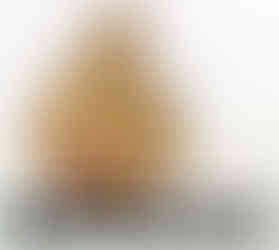Egyptology in Southend
- southendmuseums

- Jan 21, 2020
- 2 min read
We may have 'Britain's answer to Tutankhamun' in the form of the Prittlewell Prince, but Southend's connection to Egypt reaches far beyond that...
In 1867, Charles Nicholson was born in Hadleigh, Essex as the first son of Sir Charles Nicholson, 1st Baronet. His father, Charles senior, was the famous Charles Nicholson: eminent professor, doctor, philanthropist and businessman who travelled across Europe collecting antiquities.
Nicholson I was born in Whitby, Yorkshire in 1808. He studied medicine at the University of Edinburgh, graduating in 1833. Later in that year, he sailed to Sydney, Australia where he inherited his uncle's considerable fortune. Although a medical man, Nicholson was deeply interested in classics and history and embarked on a grand tour across Europe between 1857-8. He travelled through Egypt, Italy and Greece collecting beautiful works of art, grave furniture and incredible antiquities from the ancient world.
When he returned from his travels, he donated some 1000 objects to the University of Sydney where he was provost (1854-62). With the collection, the university founded the Nicholson Museum to display the objects and it is now home to the largest collection of antiquities in the southern hemisphere. The collection has grown over time through acquisition programmes, donations and private bequests.
In 1862, Charles Nicholson, 1st Baronet returned to England and in 1865 he married Sarah Elizabeth Keightley where they had 3 sons, The eldest son was born in Hadleigh in 1867, christened Charles and inheriting his father's title of Baronet. Charles Nicholson II rose to fame as a church architect working on restoration projects at Exeter, Salisbury and Winchester cathedrals. In 1916, he purchased Porter's manor (now Porter's Civic House) to save it from demolition. He later sold the manor to the town.
Some time in the early 20th Century, Southend Museums acquired a collection of Egyptian antiquities from Porter's House, presumably from the collection of Charles Nicholson II and ultimately from his father's original collection. Although the objects are currently in storage, we hope to display them in an exhibition in 2020.
On the 22nd August 2019, the Mehen Foundation of Egyptology from the Netherlands visited Southend Museums to study the Nicholson collection. Their knowledge and expertise has so far proved invaluable and we have already learnt so much more about the collection. Experts across Europe are being consulted on the various heiroglyphs, pottery, jewellery and ushabti figures in the collection and we hope to hear some results in the near future.
To find out more about Nicholson and his life, visit the Nicholson Museum website:






















Nice!!
Reading about the Egyptology exhibits in Southend really highlights how local museums can open windows into far‑away worlds while enriching the cultural landscape here in the UK. The way ancient Egyptian artefacts and stories are presented makes history feel alive, inviting visitors of all ages to connect with ideas about belief systems, daily life, artistry and ceremony that shaped one of the most enduring civilisations in human story. Enthusiasts in online din UK gams communities often share reflections on museum visits, comparing how different institutions interpret cultures and how those experiences influence their understanding of global history.
When a museum brings together thoughtful curation, engaging interpretation and accessible storytelling, it inspires curiosity and encourages deeper engagement with the past.…
Tối qua mình đọc các bình luận trao đổi trên một diễn đàn, mình bắt gặp KP 88 được chèn vào giữa câu chuyện. Mình bấm thử xem cho biết, chủ yếu là để xem cách trình bày và cấu trúc nội dung. Lướt nhanh thì thấy tổng thể khá gọn gàng, tạo cảm giác đáng tin cậy. Xem xong mình quay lại đọc tiếp các bình luận khác, chứ cũng không đào sâu thêm
The exhibits sound amazing and well worth a visit. For anyone sharing photos or videos from their experience, test this feature to make your visuals even more striking and engaging!
Tối qua mình đọc các bình luận trao đổi trên một diễn đàn, mình bắt gặp TR88.COM được chèn vào giữa câu chuyện. Mình bấm thử xem cho biết, chủ yếu là để xem cách trình bày và cấu trúc nội dung. Lướt nhanh thì thấy tổng thể khá gọn gàng, tạo cảm giác đáng tin cậy. Xem xong mình quay lại đọc tiếp các bình luận khác, chứ cũng không đào sâu thêm
Hôm trước mình có lướt mạng và thấy mọi người bàn tán về GO99, nên mình quyết định mở thử cho biết mọi người đang nói gì. Mình không tìm hiểu kỹ lắm, chỉ lướt qua một chút để xem cách bố trí và nội dung tổng quát. Thấy khá ngăn nắp và dễ dàng để theo dõi, nên sau đó mình lại quay về đọc thêm các bình luận khác.